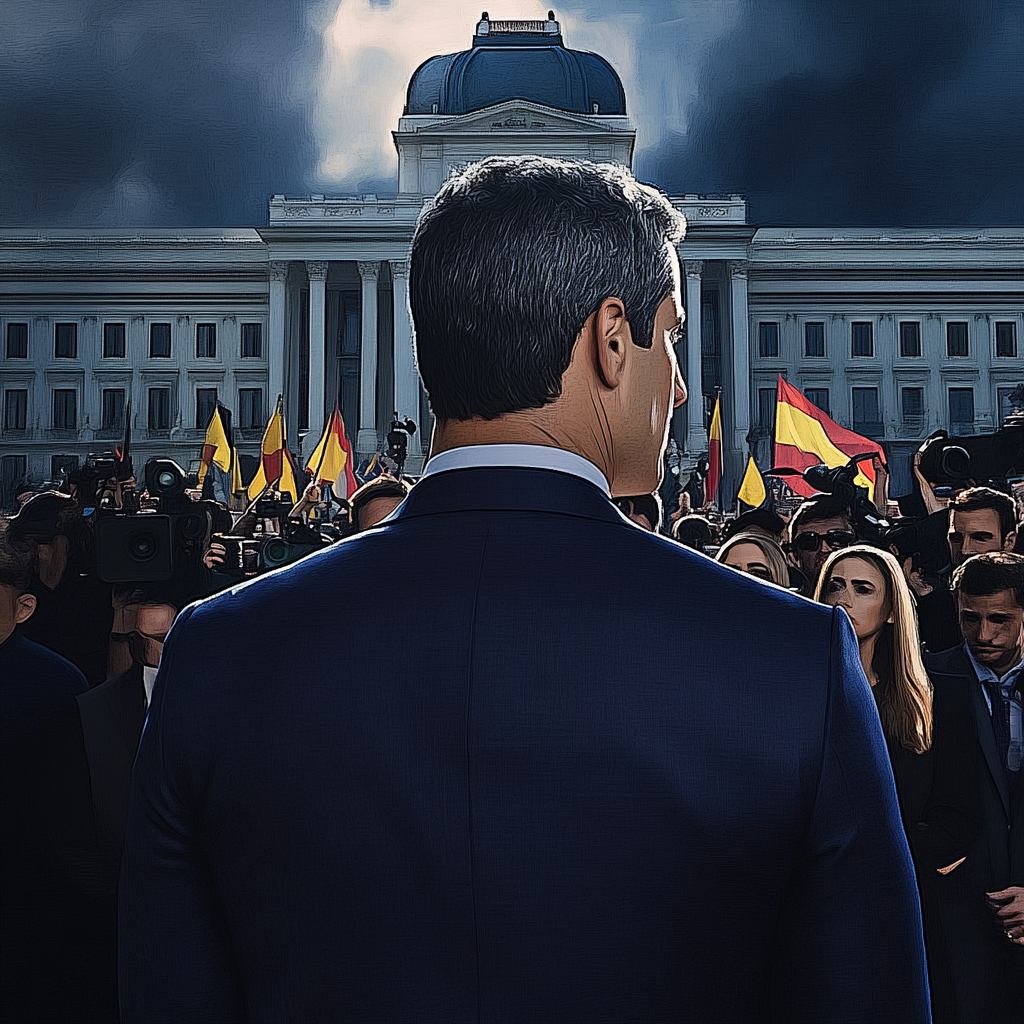The Spanish government is engulfed in corruption scandals that continue to pile up at the doors of the Moncloa. Almost daily, new cases emerge, such as the ongoing investigation against the Attorney General—appointed by and dependent on the government—adding to a growing list of officials and associates of the Socialist administration under scrutiny.
Ironically, Pedro Sánchez became president six and a half years ago by leading a no-confidence motion against the Popular Party, citing corruption scandals. Notably, no member of that administration was directly implicated, unlike Sánchez’s government today.
Now, corruption stands at Sánchez’s very doorstep. His wife, Begoña Gómez, is under judicial investigation for influence peddling and corruption, linked to her role in the Chair of Competitive Social Transformation at the Complutense University of Madrid (UCM) and her alleged involvement in the financial rescue of Air Europa.
In 2020, Gómez assumed co-direction of the UCM chair without holding a university degree—an unprecedented irregularity among the university’s 51 chairs. Additionally, she secured funding from Fundación La Caixa and Reale Seguros, leveraging government officials such as María Cristina Álvarez, Director of Programs at the General Secretariat of the Presidency, who allegedly pressured Reale Seguros to continue financing the chair. Furthermore, Gómez is accused of registering, for profit, software developed under the chair’s framework.
Her connections extend to the controversial €475 million bailout of Air Europa.She held private meetings with Globalia CEO Javier Hidalgo. Globalia, through its subsidiary Wakalua, also contributed €40,000 annually to the IE Africa Center, directed by Gómez—raising suspicions of favouritism.
But this is just one piece of a broader corruption web. The infamous Koldo case exposed an alleged corruption network during the COVID-19 pandemic, where senior officials secured lucrative contracts for medical supplies. Former Transport Minister and second in charge of the socialist party, José Luis Ábalos and his advisor, Koldo Garcíaare central figures in the case. Koldo is the only person arrested as of today. The Civil Guard’s Central Operative Unit (UCO) identified Ábalos as the key orchestrator, receiving compensation such as the use of a luxury chalet and rent payments for his partner, financed by businessman Víctor de Aldama—a known associate of Begoña Gómez, benefited from government contracts.
State security forces and the Anti-Corruption Prosecutor’s Office estimate the public contracts awarded in the Koldo case at around €60 million. Of this total, €16.5 million reportedly went to illegal commissions, and an additional €88,199 was specifically used for secure communications between suspects.
This pattern of murky dealings extends beyond pandemic-related contracts. Ábalos was also involved in the mysterious reception of Venezuela’s Vice President Delcy Rodríguez who was banned from entering European territory. Despite this, Ábalos met her at the airport and facilitated the unloading of 40 suitcases, whose contents and final destination remain unknown.
The ‘mask procurement scandal’ has implicated multiple ministries. The Ministry of the Interior, under Fernando Grande-Marlaska, faces scrutiny for irregular contracts with inexperienced companies in the health sector. The Health Ministry, led by Salvador Illa, purchased supplies at inflated prices, while the Defense and Industry Ministries also granted contracts to dubious suppliers.
And if that wasn’t enough, Sánchez’s own brother, David Sánchez Pérez-Castejón, has been indicted on five counts, including embezzlement and influence peddling, in relation to his executive role in the Badajoz Provincial Council. In his recent testimony, he failed to explain the location of the Performing Arts Office he allegedly directs, also failing to name any of his colleagues at the office.
As investigations multiply and new names surface, the government continues to dismiss it all as politically motivated lawfare. Now, the real question is not whether this crisis will escalate, but for how long can Pedro Sanchez stay in power surrounded by corruption? It is worth recalling how Pedro Sánchez expressed his motion of no confidence against Mariano Rajoy due to corruption: “His mere presence in office… weakens our democracy.”
This piece solely expresses the opinion of the author and not necessarily the magazine as a whole. SpeakFreely is committed to facilitating a broad dialogue for liberty, representing a variety of opinions. Support freedom and independent journalism by donating today.
